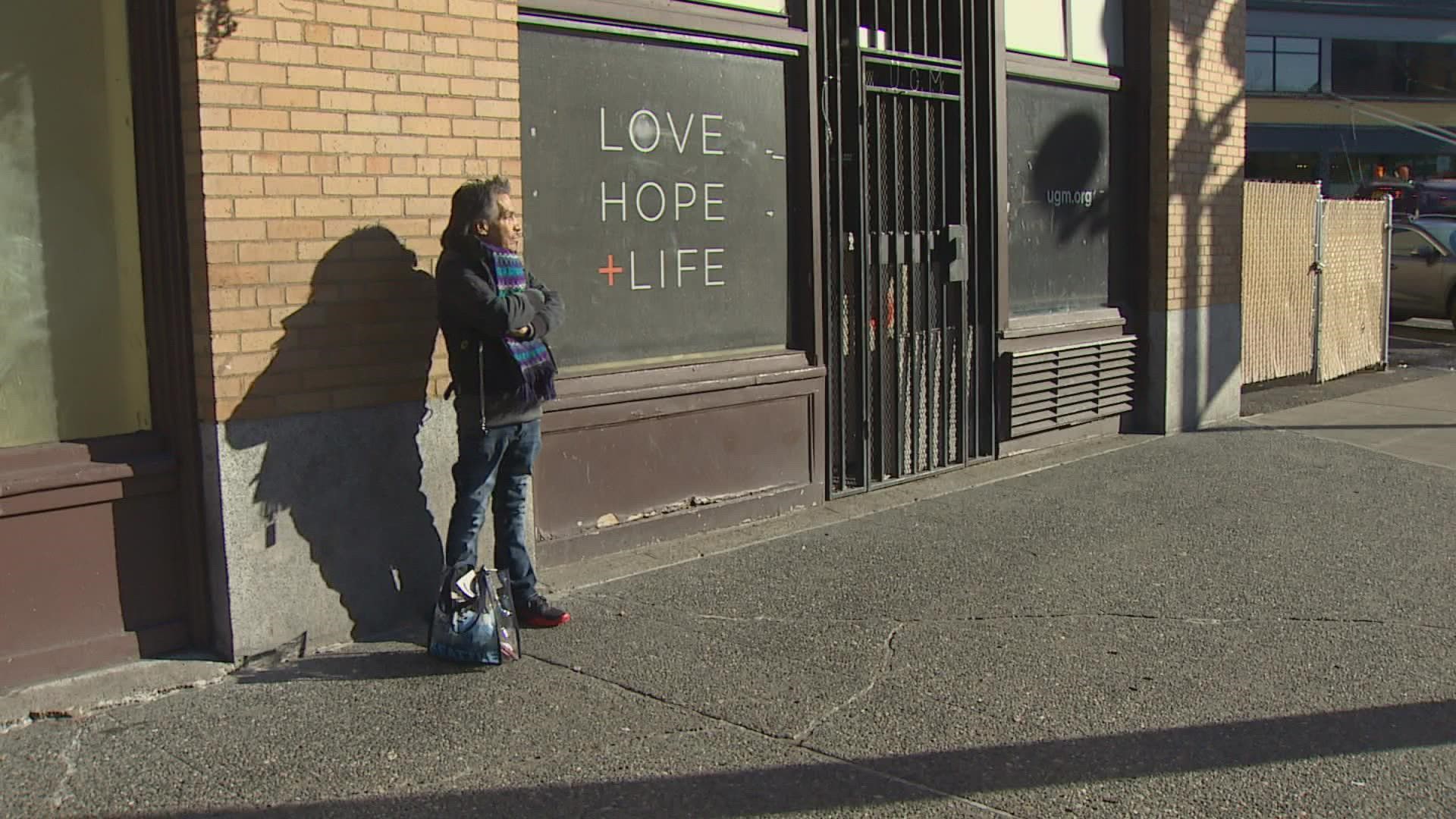KING COUNTY, Wash. — New data reveals 2022 was the deadliest year on record for people experiencing homelessness in King County. That's according to the county's Medical Examiner's Office which only investigates people who died of sudden, unexpected or unnatural causes.
"I don't like to see what I see. It hurts me to see that," said Donald taking in the sunshine in Seattle’s Pioneer Square neighborhood Monday afternoon. Donald said he’s been experiencing homelessness for the past 10 years and has seen a lot living on these streets, including an increase in drug usage.
"There's not a day that goes by I don't see people in the doorways, and that's none of my business,” said Donald. “But it's really disturbing."
King County Public Health officials said that increased drug usage played a significant role in last year's record-breaking 310 homeless deaths. According to the county's medical examiner's office 238 of them, or 77%, were determined to be "accidental." Officials with King County Public Health said most of the "accidental" deaths stem from an increase in fentanyl-related overdoses. A trend blamed on the vast amount of cheap fentanyl in circulation.
"Never even thought that it would go that high," said Donald. Public Health officials said the county is partnering with service providers, community-based organizations and cities around the region to expand supportive housing capacity through various programs. Officials said the county is also pushing to increase access to treatment.
"We're all going to work through this together, I know we will, just one day at a time," said Donald.
In an emailed statement, Anne Martens, the senior director of external affairs and communications for King County Regional Homelessness Authority, said:
"What you're seeing is a result of deep holes in our social safety net and an ongoing national opioid epidemic, falling at the intersection of homelessness and public health.
"It's important to remember that these are real people who may have a family that misses them, they may have been through significant trauma, and they were probably hoping for a better life. These deaths are preventable, and are a sharp reminder of the need for partnership across housing and health care systems."

